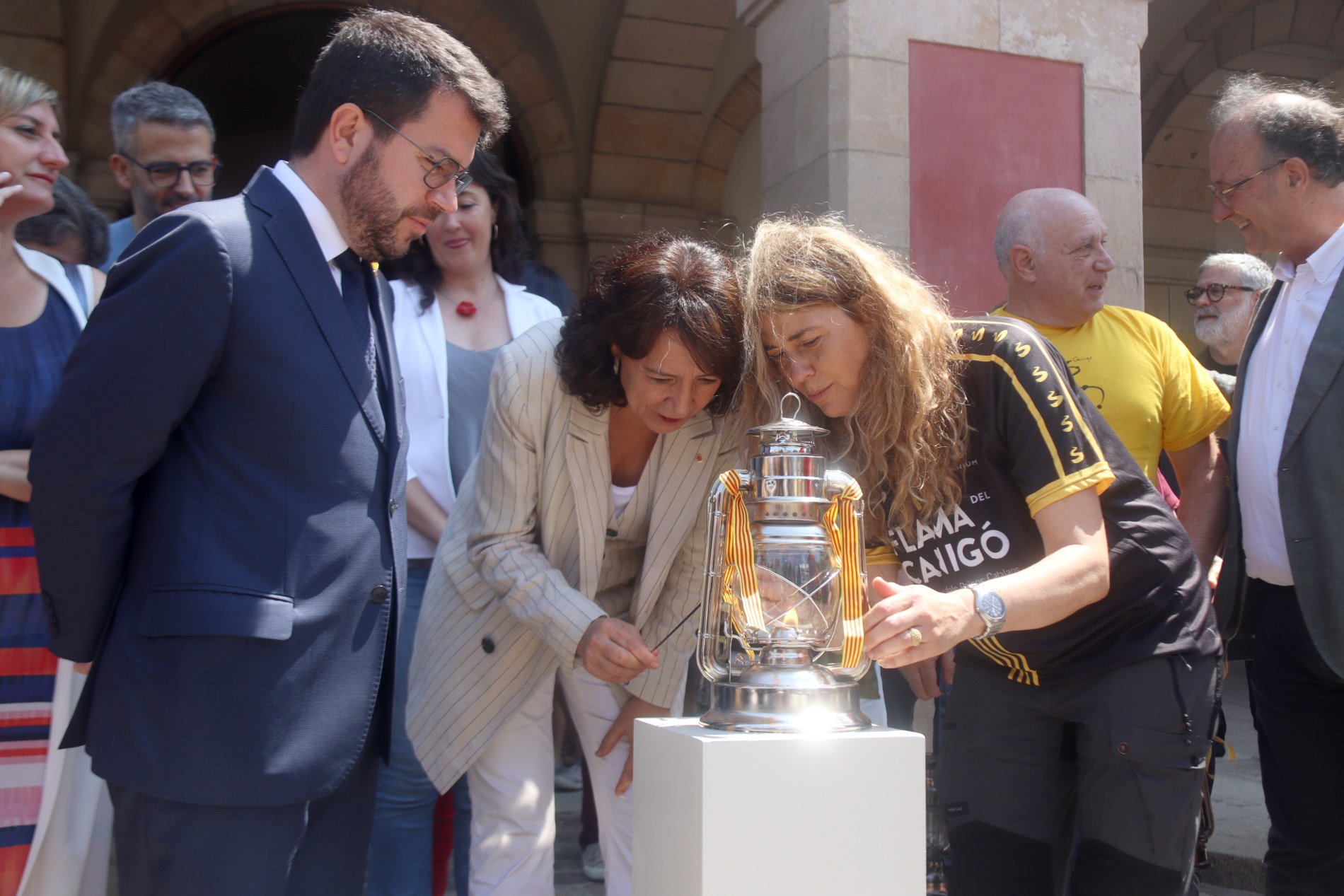In line with the Catalan tradition, on this eve of Saint John - la revetlla de Sant Joan - the flame from the Canigó mountain in Northern Catalonia has been brought to the Parliament of Catalonia and Palau de la Generalitat, on its symbolic journey to light midsummer night's bonfires all over the Catalan-speaking lands. This year, however, the flame has arrived in midst of a climate of concern for the threat to the Catalan language that is being experienced in the Valencian Country and the Balearic Islands following the government pacts between the parties of the Spanish right, the PP and Vox, after the municipal and autonomous elections of May 28th.
Given this offensive against the language, the president of the Generalitat of Catalonia, Pere Aragonès, called for a "strengthening of Catalan language and culture" in the face of the offensive of Spanish nationalism and the far right. "The first decisions of the new governments show a clear message of hostility towards the culture and the language we share", he said at the institutional event for Sant Joan, held this Friday at the Palau. Aragonès asserted the language as "an asset that we love and want to share" and denounced the "reinforced offensive" against the Catalan education system and the social use of the language.
In turn, the speaker of the Catalan Parliament, Anna Erra, also spoke of the threat to the Catalan language throughout the Catalan-speaking lands, and for this reason she extended her hand to the people of those lands - the Valencian Country, the Balearic Islands and Northern Catalonia - to "safeguard linguistic rights". This was Erra's first institutional act as speaker of Parliament. "You will have us by our side", she assured.
Erra also demanded the "end of judicialization" and the "return of the Catalan exiles". And she reclaimed the Parliament of Catalonia as the "seat of our people's sovereignty" and the Canigó flame as "a symbol of the perpetuity of our country", especially the language. "This fire represents the language we share, which has been suppressed and repressed throughout our history, and which continues to be threatened today," she said.
The ritual of the Flama de Canigó began in 1955, when the Northern Catalan man Francesc Pujades, inspired by the famous 19th century poem ‘Canigó’ by Jacint Verdaguer, had the idea of distributing the flame from fires on the symbolic mountain, throughout the Catalan countries. It was a tradition that grew in the final decade of the Franco dictatorship, in a spirit of the country’s cultural resilience.
Speaking this Friday, the Catalan minister of culture, Natàlia Garriga, also remarked that the Sant Joan celebration is a demonstration of a Catalan cultural community that is "active, alive and with a great deal of future". Garriga also highlighted "the great pleasure" of hearing the multiple voices and accents of the territory. "Culture doesn't happen alone, we do it together, and it's us in every song we dance to and in the artists we applaud," she said.
Additionally, the president of Òmnium Cultural, Xavier Antich, and the exiled MP and former culture minister, Lluís Puig, took part in the institutional event, reading the message of the 2023 Flame in a video recorded from exile. Antich, like Erra and Aragonès, warned of the "dark times that seem to be coming", with the Spanish and French states "relentlessly attacking the language that brings us together in school and town halls". He concluded with a call to organizations and citizens to mobilize "in every corner of the country" to deal with the threat from the extreme right.

